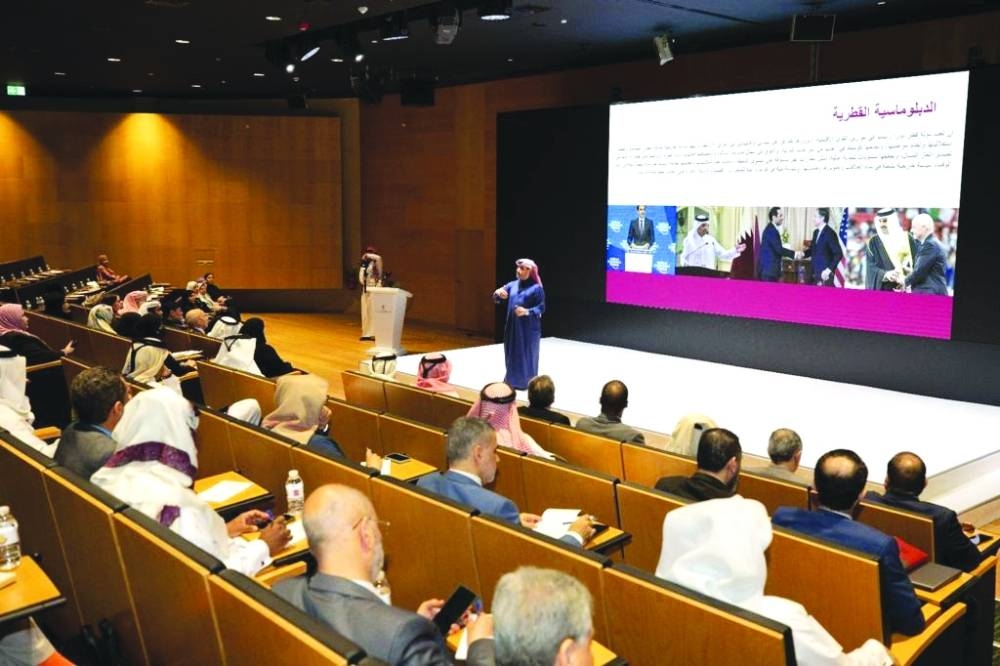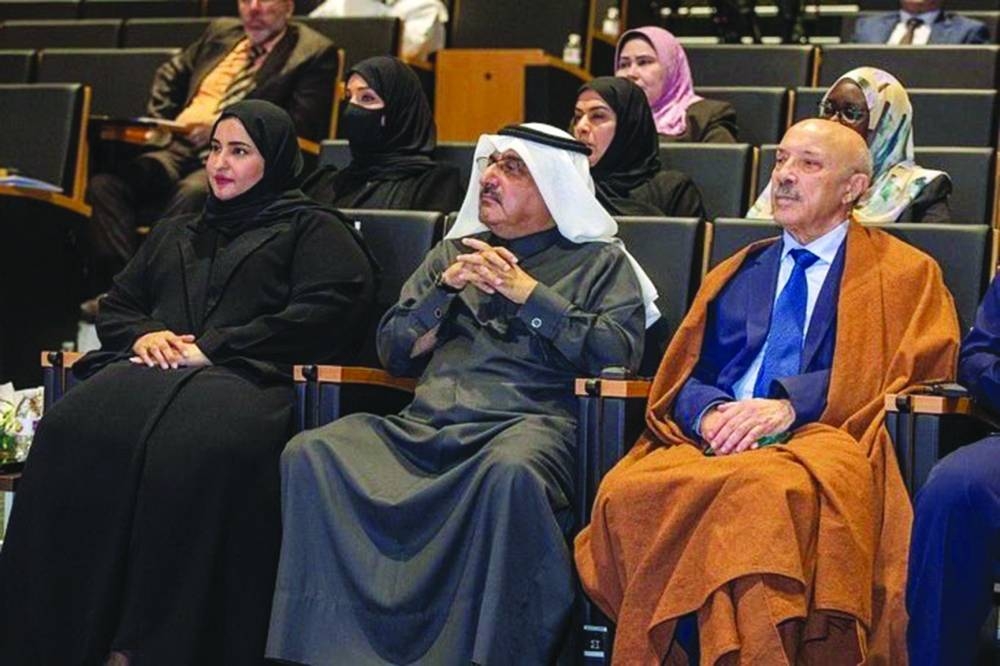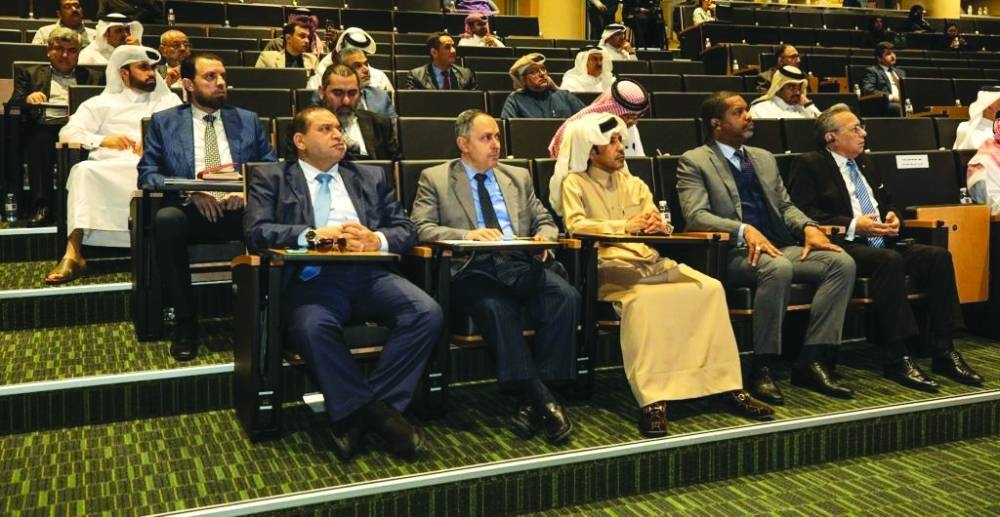The Ministry of Education and Higher Education hosted Sunday a lecture on 'Educational Diplomacy', which was delivered by HE Dr Abdulaziz Mohamed al-Horr, director of the Diplomatic Institute at the Ministry of Foreign Affairs, as part of a training plan launched by the Katara Public Diplomacy Centre during January on public diplomacy.
The lecture was attended by Darwish Ahmed al-Shaibani, CEO of the Katara Public Diplomacy Centre; Omar Abdulaziz al-Nama, assistant undersecretary of the Ministry of Education and Higher Education for Special Education Affairs; Dr Khaled Abdullah al-Ali, acting assistant undersecretary for Higher Education Affairs, and several ambassadors and members of the diplomatic corps
HE Dr al-Horr affirmed that Qatar plays a dynamic role in the area of public diplomacy through a set of cultural projects, such as Katara Cultural Village Foundation and Qatar Museums, and by hosting conferences, meetings and seminars on various international topics and issues, along with Qatar Airways, which has contributed in introducing Qatar to large segments of travellers and the transformation of Hamad International Airport into a global transit hub. It has also achieved the same through a network of media channels operating in Qatar such as Al Jazeera and beIN Sports, in addition to its active participation in international organisations. Qatar possesses "26 tools in the basket of soft power, which contains many projects that have imposed themselves strongly in terms of soft power globally, most notably sports diplomacy that has been achieved through the impressive organisation and success of the FIFA World Cup Qatar 2022", he noted.
HE Dr al-Horr said Qatar has invested in the field of education and higher education as one of the most important tools of soft power, through innovation in university education, and made tremendous progress in this sector through the Education City, which hosts major international universities and schools. He explained that soft power achieves three basic goals: positioning, attractiveness and protection, which is what Education City is accomplishing by achieving international fame, attracting students and teachers from all over the world.
Speaking about Qatari diplomacy, he noted that Qatar has played a major role in the regional balance of power through its emergence as a political and economic centre in the Middle East and its adoption of an independent foreign policy that protects its interests, guarantees its independence, and serves its citizens, pointing to Doha's success as a mediator in many conflicts. He highlighted the country's excellence in the field of peacemaking, its hosting of major international events and its place at the forefront of the world in exporting liquefied natural gas.
Further, HE Dr al-Horr stressed that protecting and maximising these gains requires an active foreign policy in building, developing and maintaining relations, awareness of regional and international changes, and the ability to deal with them wisely and intelligently. He explained that the pillars of Qatari diplomacy are based on a set of major principles and starting points defined by the Qatari constitution and Qatar National Vision 2030, political practice and strategic interests, such as respecting international law, defending public and private freedoms and human rights, consolidating international peace and security by peacefully settling international disputes, and supporting the right of people to self-determination.
For his part, al-Shaibani referred to the efforts led by the centre in introducing public diplomacy through its launch of the training plan for Qatari public diplomacy - January 2023, which includes a series of educational lectures and training courses, in conjunction with its launch of a media awareness campaign. In co-operation
with local satellite channels and social media, it includes a series of television interviews with a group of ministers, ambassadors, diplomats and academics, in order to attract distinguished national officials, and to qualify them and enhance their skills in public diplomacy and the art of communication and negotiation.
He stressed the importance of these courses and lectures held by the Katara Public Diplomacy Centre, whether in Katara or at the ministries and official institutions, in building knowledge reinforced with theoretical and practical skills, enabling them to contribute to creating strong ties with nations of the world, and effectively serving Qatar in various forums, as well as conveying its civilised image with honour, honesty and competence.



